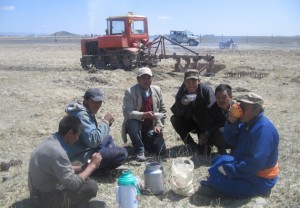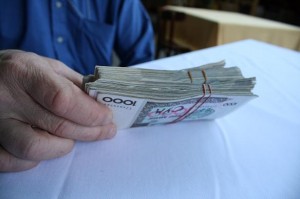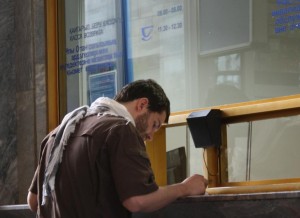Travling Cash
One of the number one reasons we hear that people don’t abandon their cubicles and travel is a lack of money. One tip for managing your travel funds is to compare bank accounts. There are a lot of metrics for this, but essentially you want an account that you can access from around the globe, and one that has the added features you want, like checking and credit, or maybe just debit. Our tip? — Look into a basic bank account, for ease and less confusion down the line. Get a good account that will work for you, and that you can access from online while abroad.
Yeah, money is important. And that means (sadly) that you may have to pay your dues and work for a while before you hit the open road. Many of the long-term travelers we’ve met on the road are older. They worked hard for the right to bugger off the grid. On the other hand, many of them were self employed and able to work from hostels and cafes along the route. Either way, one thing all travelers with long-term aspirations have is great money management skills.
Second, know your financial situation. Don’t run from your obligations. You’re abandoning the cube, not society as a whole. If you run from debt they’ll eventually find you. So, get your financial situation to a manageable, happy place where you have enough to get by and have debit eliminated. Many travelers work from the road as writers, web developers, critics, photographers, etc. Find a skill that will pay and keep your bank account replenishing by putting in a few hours here and there for the cause.
Third, with a bit of work you can travel for far cheaper than you ever imagined. Instead of booking hotels, look for hostels and join HostelWorld for discounts and deals. CouchSurfing is another way to save money as you travel. Going by land is cheaper than by air in some countries (Asia, Africa, S. America especially). One thing that gets expensive is being in a rush, you are stuck buying whatever you need to have to get your vacation done in a time frame. That’s not relaxing. Take your time (just quit, ATC, baby!) and really travel on a dime. With solid, financial planning behind you and frugal living ahead it can be done.
Best of luck as you look for traveling cash and organize your financial portfolio so you can focus on enjoying this adventure called life.














